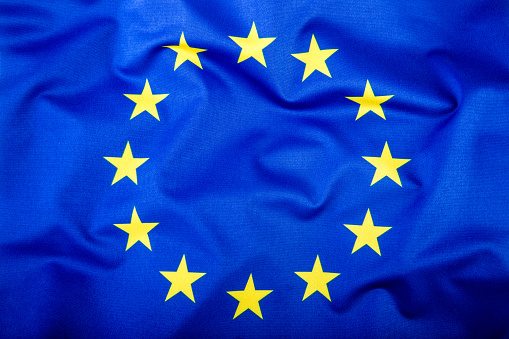Mange har lenge snakket om at forskning og innovasjon må innrettes slik at de kan bidra til å løse de «store samfunnsutfordringene». Nå starter en diskusjon om erfaringer så langt med hvordan ideen er blitt implementert i faktisk forsknings- og innovasjonspolitikk, særlig i EU. Den såkalte Lunderklæringen fra 2009 («Europe must focus on the grand challenges of our time») spilte en viktig rolle da denne ideen fikk en sentral rolle i EUs forsknings- og innovasjonspolitikk generelt og i Horisont 2020-programmet spesielt. Samtidig som redaksjonen av dette nummer av Forskningspolitikk avsluttes, blir det arrangert – i Lund, naturligvis – en større konferanse om temaet under tittelen «The Lund Declaration revisited – Next step in tackling societal challenges». Norges forskningsråd har annonsert at det vil arrangere en konferanse på nyåret om det beslektede temaet: «Samfunnsutfordringene utfordrer forskningspolitikken». Forskningspolitikk vil komme tilbake med mer stoff om temaet; i denne omgang trykker vi et innlegg fra 2014 som viser hvordan ideen har inspirert to av de mest sentrale forskerne i Europa innen forsknings- og innovasjonspolitiske studier til å reflektere over de utfordringer forsknings- og innovasjonspolitikken stilles overfor som følge av ideen at den skal bidra til å løse de virkelig store samfunnsutfordringene.
STEFAN KUHLMANN, PROFESSOR, UNIVERSITY OF TWENTE
ARIE RIP, PROFESSOR, UNIVERSITY OF TWENTE
Grand challenges have become a popular feature of science policy, particularly at the level of the European Commission, which has used the label for issues such as climate change and ageing populations. This can be seen as priority setting, leading to mission-oriented research programmes, but the actual challenges for research policy that are posed by grand Challenges should not be underestimated.
Grand challenges should be seen as open-ended missions concerning the socioeconomic system as a whole, inducing or requiring system transformation. They are ambitious, but not in the way the Manhattan project to build the atom bomb or the Apollo project to put a man on the moon were. Those challenges were technical and organisational, and the goal unambiguous. In contrast, grand challenges involve many different players and perspectives. As a result, policy on grand challenges has to cope with contestation, non-linearity and bifurcations.
Designing research policy for grand challenges requires a long-term perspective and a broader notion of innovation than is usual. Standard policies tend to be defined and studied in terms of the existing Research and innovation system. But that system evolves, sometimes undergoing transformative change. Indeed, the focus on grand challenges is itself a driving force of the evolution of research and innovation systems.
So here is a challenge: how can we anticipate, modulate and govern such changes so that grand challenges can be addressed?
One way is through concerted government action. This requires coordination of the relevant players and interested parties, a strategic definition of goals and high-level political backing. The German government’s High-Tech Strategy is one example of such an approach. Coordination can be delegated to independent mission-driven agencies held accountable for strategic objectives, as is the case with the European Innovation Partnerships.
There are other options. We can learn from analogous historical efforts – for example, the drive to increase yields in wheat and rice, known as the Green Revolution. Government agencies played an important role there, but so did charitable bodies such as the Rockefeller Foundation. Charities serve the public interest but can define what this means in their own terms, without bureaucratic and democratic constraints. And charities such as the Bill and Melinda Gates Foundation, with its focus on health in developing countries, could well coordinate concerted action on a grand challenge.
Even if charities take the lead, governments will have a role – in particular, as the creators of space for experimentation, in which a variety of players can deliberate and create novel approaches. Implicitly, this has happened before, for example in some of the Commission’s Framework programmes. The need for this – which could be described as directed facilitation or metagovernance – is increasingly recognised.
Each grand challenge has its own characteristics, based on what the various interested parties consider to be the main points of concern and leverage. These could be social issues and responsible innovation, natural phenomena, a lack of Scientific knowledge, novel ways of doing science or better technologies. And the challenge may be to adapt to inevitable developments or to mitigate forces that can be influenced – terminology used for climate change, but widely applicable.
Furthermore, a grand challenge might be to bring about something desired, such as agriculture that is integrated in the environment and in transport and Production structures, or to avoid something bad, such as shortages of energy or water. Understanding each challenge’s nature requires strategic intelligence, such as the use of scenarios to explore potential changes.
Addressing the grand challenge of transforming research and innovation systems means reconsidering the roles of science, technology and innovation policy and accommodating a wide range of viewpoints. We need appropriate tentative policy mixes that facilitate system changes where needed. These mixes may draw on classical priority-setting and implementation approaches, on transformation in science or breakthrough innovation, or on particular varieties of policy instruments. But they will have to focus on systemoriented strategic interventions, tentative and experimental in design, including out-of-the-box approaches such as novel combinations of actors and alliances.
Artikkelen trykkes med tillatelse fra Research Europe som publiserte den første gang 8. mai 2014, se http://bit.ly/1G6Chks. Artikkelen bygger på forfatternes rapport til daværende European Research and Innovation Area Board (ERIAB) fra januar 2014, med tittelen The Challenge of Addressing Grand Challenges. Denne rapporten er tilgjengelig .

